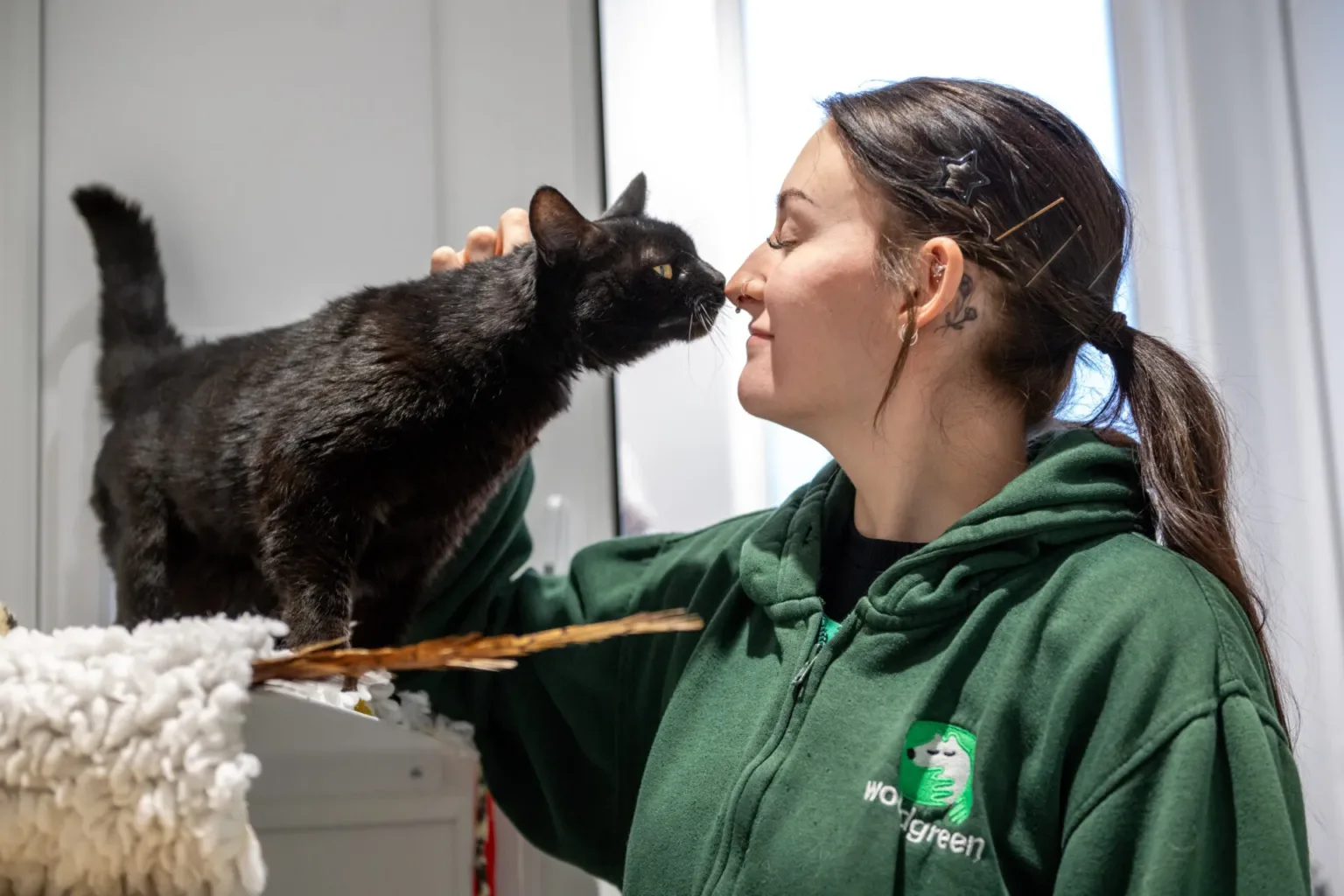Could you star in The Dog House?
If you're looking for a match, filming for the next series starts this Spring.

Wondering why your cat is constantly licking you? We explain some of the possible reasons –and how you can stop it.
It’s fair to say that cats are well known for their grooming habits. But when they lick their owners, it can mean more than just a need for cleanliness. From showing affection to seeking attention, or even expressing anxiety, there are many reasons for licking behaviour.
In this article, we’ll look at why cats lick people, what it means, and how you can better understand your feline companion’s emotions and needs.
There are a few reasons why cats lick. This is part of their normal cleaning process, but it’s also a self-soothing behaviour and a way to bond with other pets.
A cat’s tongue is covered in tiny hook-like hairs to help with cleaning. This allows them to clear their fur from any dirt to debris – think of it as ‘combing’. But this does mean a cat’s lick will feel a little rough against your skin!
Below, we explore different reasons for cats licking.
Cats may show stress by overgrooming. This is when they lick themselves so much that it creates bald spots in their fur. Sometimes, this can make their skin incredibly sore. It’s mainly seen on areas such as their stomach or between their back legs.
You may find they continue this grooming onto you, especially if you’re trying to distract them. This isn’t unusual behaviour – cats find it very self-soothing and relaxing to lick people. This can be accompanied by purring, and it may become a habit.
You may notice particular things stress your cat, like the noise of a hoover. Their instinct to cope with this is to groom. This is a distraction technique they use to help them feel a positive emotion in a negative situation.
If you see your cat doing this, we suggest taking them to see a vet. As well as stress, it could be related to pain or sickness.
Cats can show affection towards humans in a lot of ways. It varies from cat to cat, day to day. This can include rubbing around your legs, sitting with you on the sofa, curling up on your lap – and licking you.
As we mentioned above, grooming and licking is a way for cats to self sooth and relax. So, you may notice them licking you when they come to settle on the sofa before having a nap.
If you have more than one cat, they may groom each other, which is known as allogrooming. This is mainly a positive behaviour between cats, but some aren’t so keen on it! If you notice one cat becoming stressed by this behaviour, it’s best to try stop it. You can do this by distracting them both with something else to keep them occupied like one of their favourite toys.
Every cat has their own way of showing affection and seeking comfort. To get to know your pet better and spot what their behaviour really means, take a look at our guides on understanding your cat and cat behaviour traits.
Some cats may continue to lick you simply for some attention, which is often a learnt behaviour . If they know that licking you gets your attention or what they want, such as a treat, they will do just that!
Cats use scent as a big way of communicating. By licking items, people or each other they can be signalling to other cats they’ve been there, and this is their territory (you can learn more about the different ways cats do this in our article on how cats mark their territory).
If you don’t want your cat licking you, it’s important not to punish or scare them. This will break the bond between you.
Instead, look for ways to distract them when they lick you. Try getting them to play with a toy either by themselves or with you. This way, they’re still able to connect with you and have your attention – but in a way that suits you both.